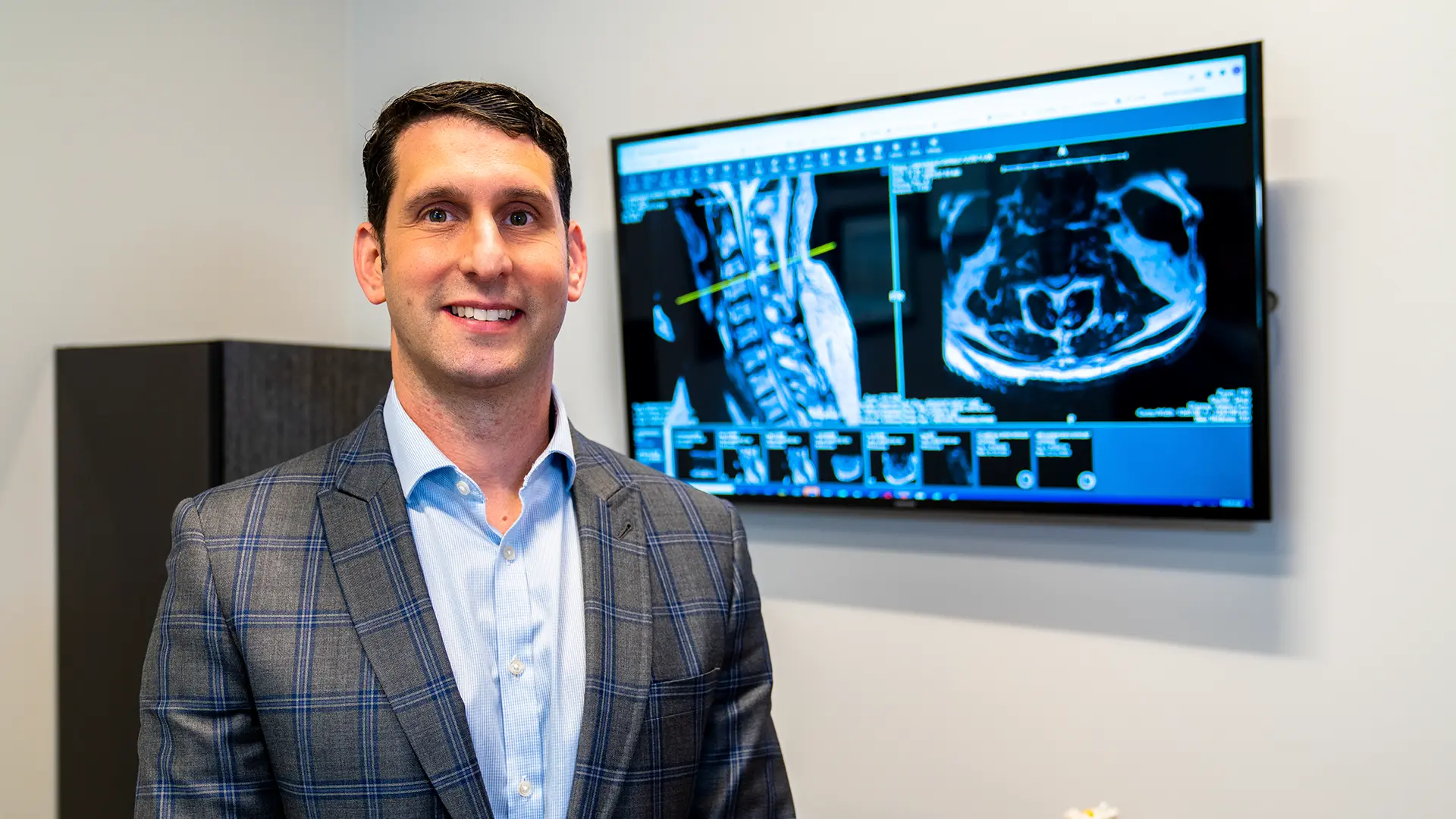

There are many kinds of medical specialists.
Sometimes, finding the right one can be confusing for patients. For example, which doctor should I go to if I have a herniated disc in my back?
Dr. Seth Grossman MD, MS, FAAOS
Please call today to schedule a consultation with me. (973)319-8573
Request a consultation with Dr. Grossman
An orthopedic spine surgeon, or a neurosurgeon?
Well, the short answer is that there are excellent specially trained doctors in both fields who would provide top notch care, but let’s dive a little deeper to understand the difference in the specialties.
Orthopedic spine surgeons specialize in the musculoskeletal system
Orthopedic spine surgeons focus their attention on the treatment of conditions affecting muscles, cartilage, bones, and connective tissues.
During their training, orthopedic spine surgeons learn a variety of skills including how to mend broken bones, repair torn ligaments, perform joint replacements, as well as surgery to alleviate various spinal conditions.

Neurosurgeons specialize in the nervous system
Neurosurgeons focus their attention on the treatment of conditions affecting the brain and spine, as well as nerves which run throughout your body.
During their training, neurosurgeons learn how to perform surgery on the brain for injuries, tumors, and disorders such as epilepsy. They also learn to alleviate pressure on nerves in your face and those in your spine.
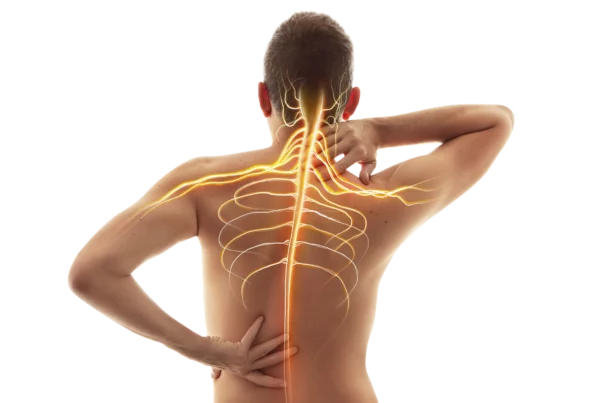
Orthopedic spine surgeons specialize in the musculoskeletal system
Orthopedic spine surgeons focus their attention on the treatment of conditions affecting muscles, cartilage, bones, and connective tissues.
During their training, orthopedic spine surgeons learn a variety of skills including how to mend broken bones, repair torn ligaments, perform joint replacements, as well as surgery to alleviate various spinal conditions.

Neurosurgeons specialize in the nervous system
Neurosurgeons focus their attention on the treatment of conditions affecting the brain and spine, as well as nerves which run throughout your body.
During their training, neurosurgeons learn how to perform surgery on the brain for injuries, tumors, and disorders such as epilepsy. They also learn to alleviate pressure on nerves in your face and those in your spine.

Is the spine part of the musculoskeletal or nervous system?
The answer is: both!
The spine is a very complex structure. Your spinal column is the main support structure of your body. It contains bones, muscles, ligaments, and tendons, all of which support and provide movement to your neck and back.
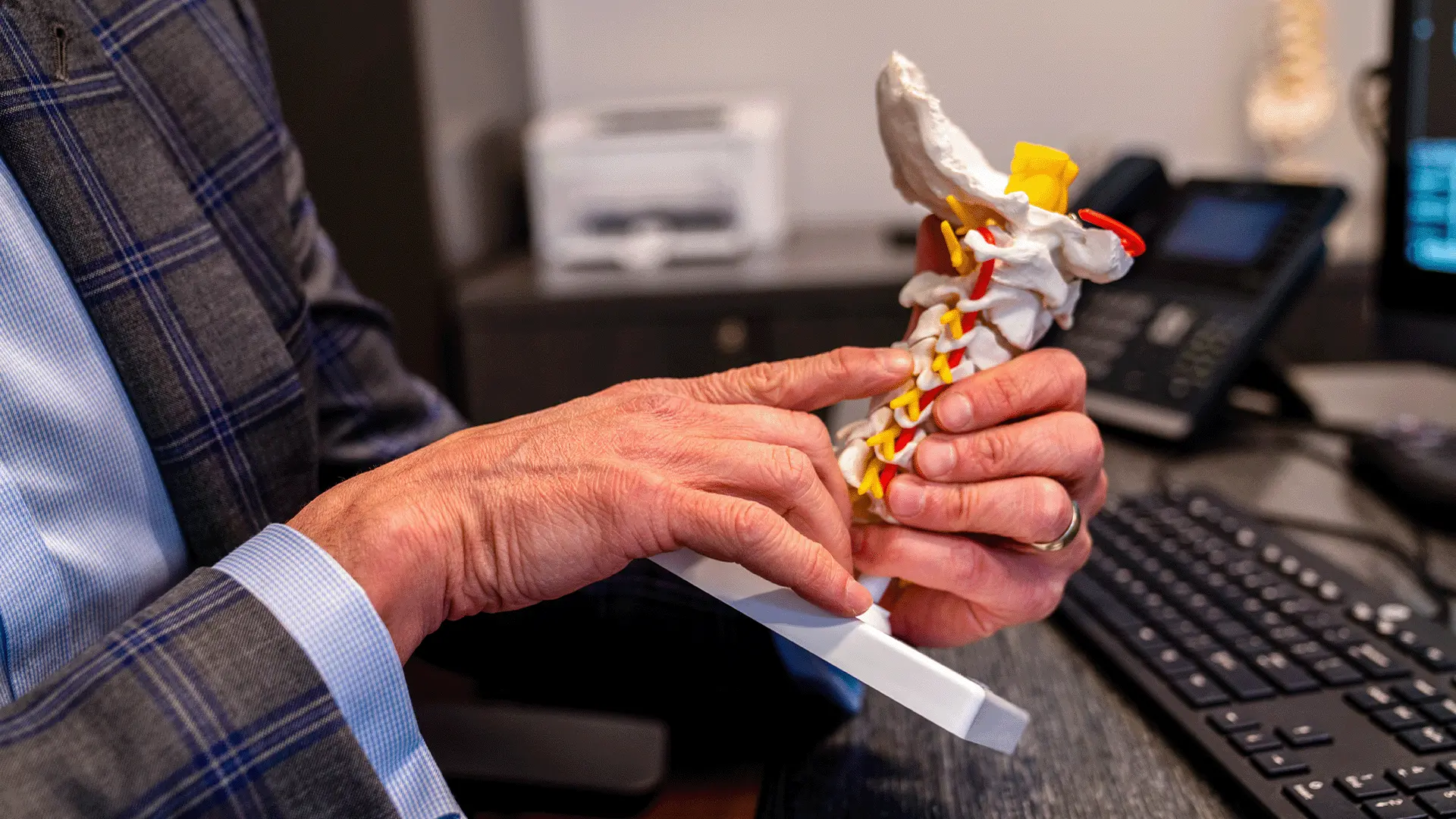
Your spine also contains your spinal cord and other nerves. The main nerve in your body is called the spinal cord.
It comes out of your brain, and runs down a channel in your spine. Nerves exit your spine and branch out like a tree into your body.
Thousands of signals are sent back and forth between your brain and body every second in order for you to move your limbs, and feel objects that you touch. These signals travel through your spinal cord and nerves.
Both orthopedic spine surgeons and neurosurgeons perform surgery on the spine
As the spine is a combination of both systems, both neurosurgeons and orthopedic spine surgeons are trained to treat spinal disorders and perform spine surgery.
Their approaches to the problem are somewhat different based on their respective specialty. Orthopedic spine surgeons traditionally focus on the structural parts of the spine, while neurosurgeons focus on the spinal cord and nerves.
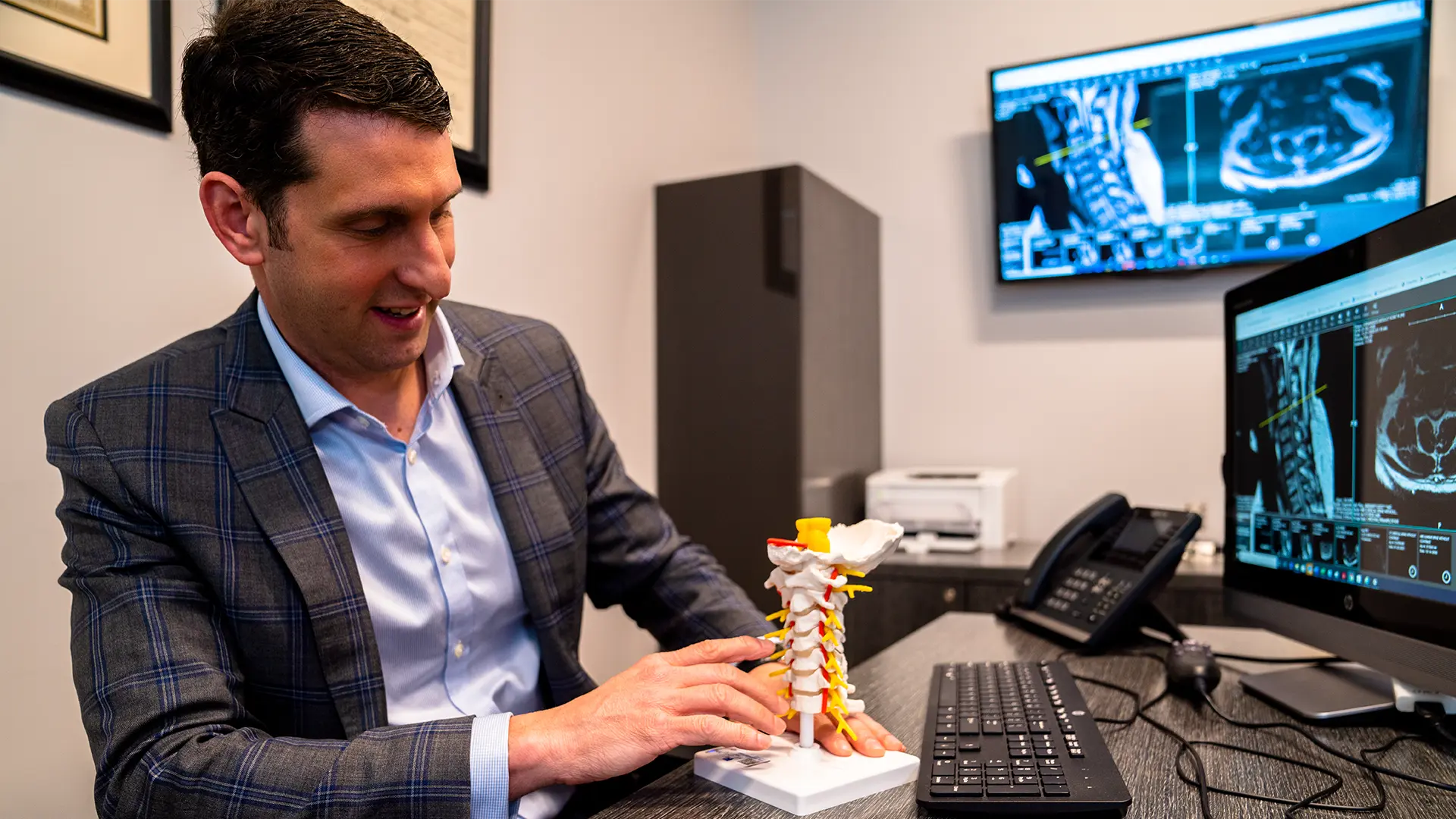
Today, there is a lot of crossover in training and most orthopedic spine surgeons and neurosurgeons will do additional fellowship training after their residencies to focus on treating all aspects of the spine.
Making an informed decision about surgery
The type of specialist performing your surgery should be based on the level of expertise for the treatment of your condition. There are some important questions you should ask before making a decision.
Some of these include:
- What is your experience with the procedure recommended for my condition? This will help you to understand the doctor’s experience and skill level with the specific procedure.
- What are some of the potential risks and complications associated with this surgery? Understanding the risks of a procedure is important to helping you make an informed decision in your treatment.
- What outcome can I expect from this surgery? Knowing the success rate of a procedure can help you evaluate the chance of a positive outcome and any potential impact to your daily living.
- What can I expect during recovery and what kind of rehabilitation is needed? Understanding the recovery period and necessary rehabilitation can help you to prepare for surgery and plan for care after your procedure.
- Are there any other treatment options I should consider aside from surgery? It is important to understand and discuss alternative treatment options with your surgeon. These may include things like physical therapy, injections, or pain management. Discussing alternative treatments with your surgeon can help you evaluate all options including non-surgical ones.
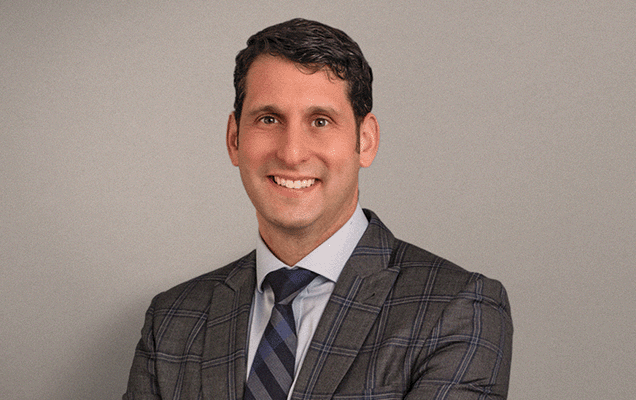
About Dr. Seth Grossman
Dr. Seth Grossman is a board-certified, fellowship-trained orthopaedic spine surgeon. He has been involved in clinical research throughout his medical training and has been published in several peer-reviewed journals. Dr. Grossman prides himself on first exhausting all non-surgical treatment options. When surgery is necessary, he employs surgical techniques that will achieve the best results for his patients while causing the least amount of pain and allowing the fastest recovery possible. He is passionate about combining medicine and technology. He specializes in robotically assisted spine surgery, disc replacement surgery, and minimally invasive techniques for both spinal decompression and spinal fusion surgery.
Neurosurgeons of New Jersey provides the best of both worlds with Orthopedic Spine Surgeons and Neurosurgeons working collaboratively to bring expertise from both specialties for patients with spinal conditions. You will receive outstanding care by top surgeons to help you achieve the quality of life you deserve.
